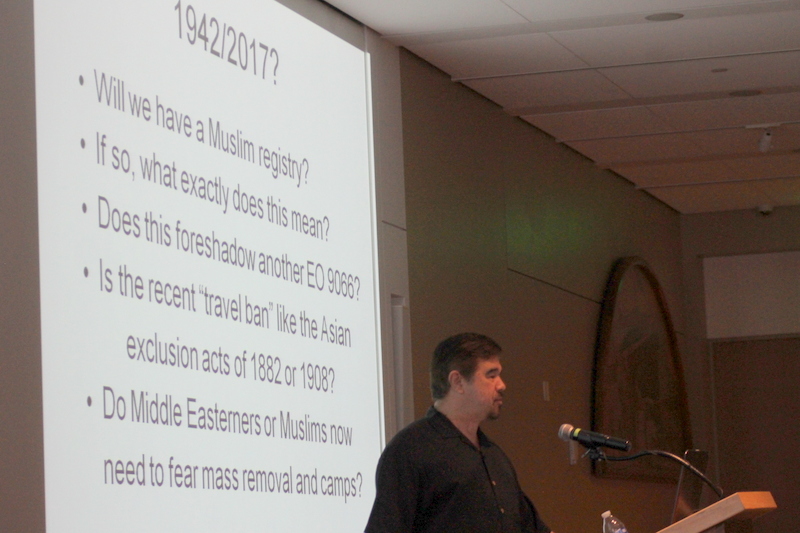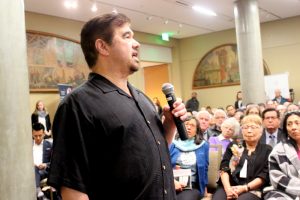 Making the connection between President Donald Trump’s Executive Order to ban certain members of the Muslim community from entering the United States, and President Franklin D. Roosevelt’s Executive Order 9066, those attending the Day of Remembrance events on Sunday in Denver warned about how history can repeat itself and to never let it happen again.
Making the connection between President Donald Trump’s Executive Order to ban certain members of the Muslim community from entering the United States, and President Franklin D. Roosevelt’s Executive Order 9066, those attending the Day of Remembrance events on Sunday in Denver warned about how history can repeat itself and to never let it happen again.
Executive Order 9066 – signed exactly 75 years earlier on February 19, 1942 – forcibly removed some 110,000 of Japanese ancestry, including approximately 37,000 American citizens from their homes in Oregon, Washington, California, and Arizona to concentration camps. Those ordered were given one week to gather what would fit in one suitcase and were forced to give up their homes and businesses to travel to an unknown location for an indefinite length of time. Camps were erected in ten remote areas of Arizona, Arkansas, California, Colorado, Idaho, Utah, and Wyoming.
Survivors say that the order came under the guise of protecting the US from those sympathetic to Japan during World War II, but in effect served as a land-grab to take land, homes, and businesses from Japanese who were never able to recover what was taken from them after the forced removal. For example the water that Japanese-American farmers used in rural eastern California was siphoned off and funneled to the west during the war. Former farmers were prevented from returning to farm after their eventual release in 1945. Their land had been sold off.
 Dr. Lane Ryo Hirabayashi who teaches at UCLA was keynote speaker and pointed to the psychological short-term and long-term impacts of both internment itself, but also of the process of being singled out as a group. Those impacts included Post Traumatic Stress Syndrome (PTSD), amnesia, and repression. Hirabayashi gave evidence of how the Muslim community might be experiencing the same trauma that Japanese-Americans endured in the 1940’s, and that those impacts stand the risk of affecting future generations, “We need to think about the past, it’s not that distant, 75 years ago, and reflect on it. There are a range of policy decisions being put out on the table, and we really need to reflect on what went on before, so that we can avoid the damage that ill-conceived public policy has done in the past.”
Dr. Lane Ryo Hirabayashi who teaches at UCLA was keynote speaker and pointed to the psychological short-term and long-term impacts of both internment itself, but also of the process of being singled out as a group. Those impacts included Post Traumatic Stress Syndrome (PTSD), amnesia, and repression. Hirabayashi gave evidence of how the Muslim community might be experiencing the same trauma that Japanese-Americans endured in the 1940’s, and that those impacts stand the risk of affecting future generations, “We need to think about the past, it’s not that distant, 75 years ago, and reflect on it. There are a range of policy decisions being put out on the table, and we really need to reflect on what went on before, so that we can avoid the damage that ill-conceived public policy has done in the past.”